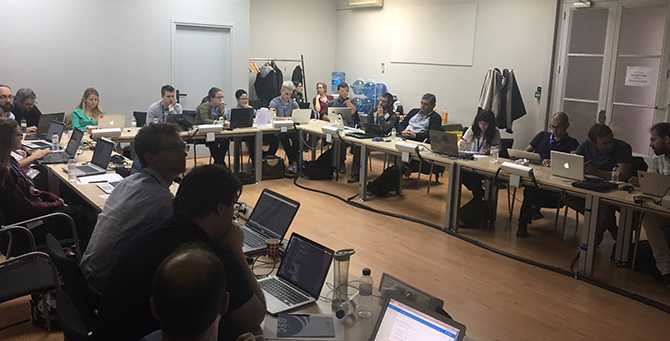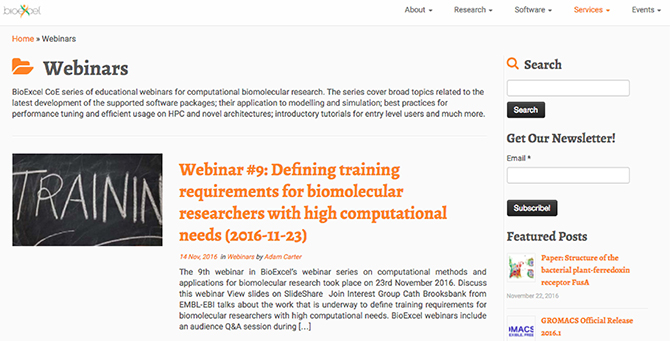BioExcel's First Birthday
Rossen Apostolov, PDC

It is now officially a year since the BioExcel Center of Excellence for Computational Biomolecular research started! We have made great progress with improving the performance and extending the functionality of the main codes that we support, extending the automation workflows further; developing the training programme and undertaking extensive outreach to the biomolecular research communities. The training events and the interest group activities have also picked up speed.
In October we held two major research community events in Barcelona: the workflows workshop and the GROMACS hackathon .

At the workflows workshop we presented several of the most popular platforms and managers for workflow automation (Galaxy, KNIME and Taverna) and two powerful managers for large-scale deployment (Copernicus and pyCOMPS). Our new friends, the core developers of the Common Workflow Language (CWL) and the Nextflow platform, came and gave invited talks. After the tutorials, the participants were given the opportunity to bring up their own problems and to get help from our experts.
The hackathon brought together the core GROMACS team and many external developers for three days of productive hacking. (We will do it again next year, so stay tuned!) And if you have not updated your favourite Molecular Dynamics engine yet, we have two patch releases for GROMACS: 2016.1 and 5.1.4 !

We have also continued with our webinar series . If you have ever wondered how to squeeze the most out of your HPC cluster with GROMACS, this webinar is the definitive guide! Predicting binding affinities is not a trivial task but the PRODIGY server makes it much more simple. Large-scale analysis on cloud infrastructure is not usually something one would do lightly, but we have it covered with this webinar in case you really want to. We also have a special webinar on defining the training needs of researchers in the field of computational biomolecular research. Many of the core aspects of the training programme, which was presented at the webinar, will be useful for training professionals (such as lecturers and application experts) in other fields of computational research.
And remember that if you ever hit a roadblock with any of the biomolecular codes that we support, we also have a range of support forums at ask.bioexcel.eu .